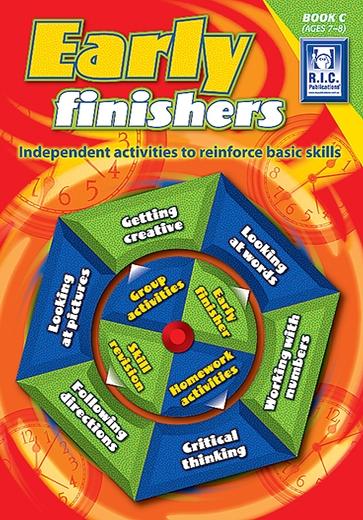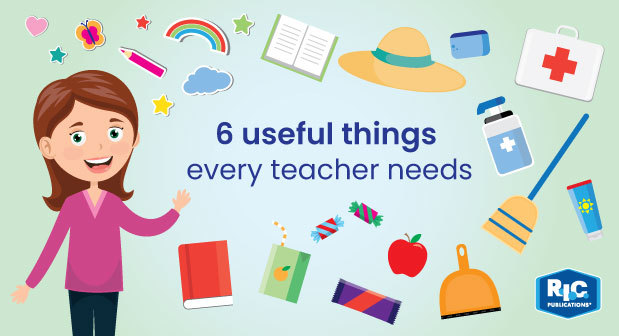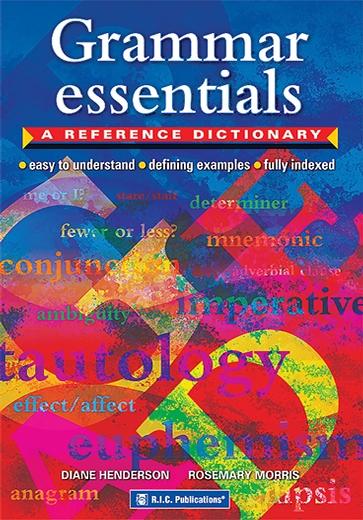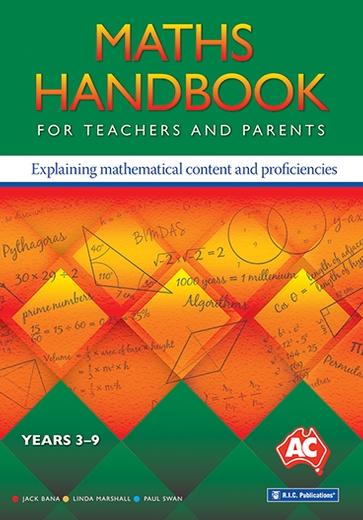- Monday 26 October 2020
- 0 Comments
With the right must-have tools in hand, teachers can be ready for almost anything.
There’s a lot involved in being the superhero that teachers are - whether it’s answering obscure questions from curious minds, celebrating achievements and good behaviour, constantly handing out pens or even handling cleaning emergencies - so having the right items in your teaching cabinet will allow you to always be prepared for whatever the day brings.
In no particular order, here are 6 useful things - from teaching resources to classroom equipment - that every primary teacher needs to keep a classroom running smoothly, handle the unexpected and to keep kids loving to learn!
ineffective (if you’re not)”, so giving stickers and stamps for working hard to achieve a great outcome can be much more inspiring than just for a job well done!
That said, regular positive feedback (especially accompanied by sparkly, shiny and cute things) is a great motivator to help students to feel a sense of achievement and take pride in their work.
Emergency Snacks
You never know when you’ll have to rush to work one morning and accidentally forget your lunch! Something shelf-stable and healthy to tide you over will keep you going with that extra energy boost to last the day. A few great choices that are healthier than the usual pack of crackers might be canned pineapple or tuna, roasted chickpea or fava bean snacks, rice or corn thins, dark chocolate dried fruit, or even some popcorn. Yum!
Health, Sanitary & Cleaning Supplies
Emergency tissues and deodorant are great to have on hand, for you and the students alike, and basic sanitary supplies like menstruation supplies are important too, especially if you’re teaching students in middle to upper primary. Conversely, younger students may still be having accidents, so some spare pairs of undies will save a lot of embarrassment!
Hand sanitizer is an absolute must-have, not only in this current COVID-19 era; schools have always been a place where a lot of germs get spread around, and it has always been important to practice hand hygiene, especially in cold and flu season. Good hygiene can literally save lives!
Finally, a basic cleaning kit - spray and wipe, paper towel, gumption, scrubber sponges and so on. Messes can happen at the most inopportune times, there aren’t always cleaners around, and often messes are much easier to sort out straight away so that you and the class can get back to it!
Relief Folder
You never know when something unexpected might come up - like falling sick or a family emergency - but when it does, it’s often hard to find time to prepare your relief teacher.
To make sure that your students still get the most out of their classroom time without you preparing in advance can save you and your relief teacher a lot of stress. Fill a folder with a few days’ worth of emergency work, some class notes, worksheets and so on. Make sure you let someone know where it is, too! That way, if an emergency ever does come up and you don’t get a chance to write relief notes, you know your kids are covered.
The Easily-Forgettable Essentials
There’s a few items of clothing and so on that you don’t use all the time, but you don’t want to get caught without them when you do need it! When you’re on playground duty, don’t forget your hat and sunscreen - for one thing you want to slip, slop, slap your way to safer skin, and for another you want to role model sun safety to students. Next, have a jacket or jumper on hand - sometimes it gets cold out on the oval and playground. In the cooler months, don’t get caught in an unexpected rainstorm without an umbrella: keep one in your cabinet, or even two in case you lend one out and it doesn’t make its way back.
Finally, you’ll often find yourself handing out markers, pens and pencils throughout your teaching days, but you don’t want to be left with none for yourself! Have a dedicated teacher-only pencil case with the ‘good’ markers and pens etc purely for your own use.
Personal Library
From books to newspapers and magazines, having age-appropriate reading resources on hand can encourage students to spend free time reading and develop their literacy skills and love of reading (remember to mark the resources with your name so they make it back to you!)
For your own personal library, it’s great to have dictionaries, reference books and teacher support resources on hand; check out our teacher support resources category for some ideas to get you started. Some of our favourites?
Resource Spotlight: Early Finishers series

Early Finishers is a series of teacher resource books containing a range of high-interest, creative and challenging activities to satisfy the demands of the early finisher. All activities relate to the primary school curriculum in English, mathematics and art, and can be completed independently of the teacher. From Year 1 all the way to Year 6, this awesome series will keep your students motivated, engaged and inspired!
Resource Spotlight: Primary Quizzes series
Another great resource, perfect for when a lesson finishes a bit early, your students have done an awesome job and deserve some serious fun, or they’re looking a bit worn-out and you’re ready to shake things up a bit. These educational quizzes are aimed at expanding students’ knowledge of their world; each quiz covers a range of topics, including mathematics, animals, our body and general knowledge, as well as a ‘Did You Know?’ fact about one of the question topics. Some are individual quizzes, while others are completed in groups, and they’re all memorable questions that will have students excited about their new knowledge long after the quiz is done!
Resource Spotlight: Grammar Essentials
This small, easy-to-use reference dictionary presents concise information about the essential elements of English grammar with relevant examples. It’s a very useful reference both for your own use, and for answering students’ questions about some of the oddities of English grammar!
Resource Spotlight: Maths Handbook
This maths handbook for teachers and parents explains in detail the content of the Australian Mathematics Curriculum, from Years 3–9 and in some cases beyond, while also including a brief coverage of the content from early childhood up to Year 2. Understanding maths and being able to explain and teach it are certainly not one and the same, and this excellent resource from three experienced maths educators is sure to become a prized possession.
Explore our teacher support resources
For more great teaching ideas, keep an eye on our teaching ideas blog.



